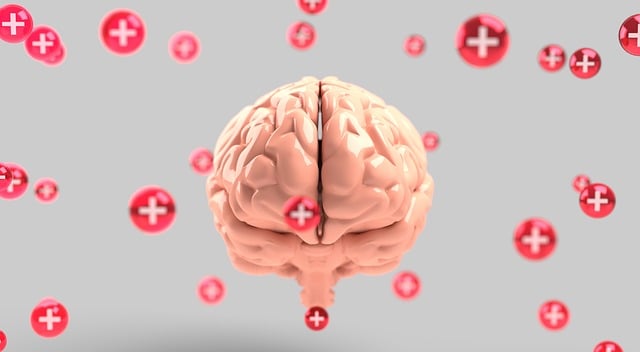Arvada Anxiety Therapy emphasizes inclusive, supportive mental wellness group settings facilitated by understanding participant experiences and implementing key strategies. Effective facilitators create safe spaces through open communication, active listening, and clear language, encouraging self-discovery and personalized coping mechanisms. Mental Health Education Programs and compassion cultivation normalize experiences, reduce stigma, and foster empathy, strengthening group bonds for enhanced coping skills development. These approaches ultimately empower individuals to navigate anxiety within a supportive community.
In today’s digital era, mental wellness group facilitation techniques are more crucial than ever. This article explores essential strategies for those navigating the complex dynamics of supportive group environments, with a specific focus on Arvada Anxiety Therapy. We delve into understanding group behavior, effective communication methods, and unique techniques to foster a safe space for healing. By examining these approaches, facilitators can revolutionize mental health support in their communities.
- Understanding Mental Wellness Group Dynamics
- Effective Communication Strategies for Facilitators
- Techniques to Foster Supportive Group Environments in Arvada Anxiety Therapy
Understanding Mental Wellness Group Dynamics

In a mental wellness group setting, understanding dynamics is key to effective facilitation. Group members may vary widely in their experiences, from those newly seeking support to individuals managing long-term conditions. This diversity requires facilitators, like those offering Arvada Anxiety Therapy services, to adapt their approach. They must create an inclusive environment where everyone feels heard and respected while ensuring confidentiality and privacy remain paramount.
Effective facilitation involves recognizing power imbalances, managing expectations, and facilitating open communication. These strategies are essential components of a successful group dynamic. Encouraging honest conversations using appropriate communication strategies can help members build trust and foster meaningful connections. Moreover, incorporating risk management planning for mental health professionals is vital to ensure the safety and well-being of both facilitators and participants, preventing potential burnout and promoting a sustainable practice while addressing complex issues that may arise within the group.
Effective Communication Strategies for Facilitators

Effective communication is a cornerstone for facilitators leading mental wellness groups. It involves active listening, where facilitators demonstrate genuine interest and understanding by paraphrasing participants’ thoughts and feelings. This not only validates individuals’ experiences but also encourages open and honest sharing. Additionally, facilitators should employ clear and concise language, ensuring everyone understands the discussion’s flow and their roles within it. Encouraging a safe space through non-judgmental communication fosters trust, allowing members to explore sensitive topics related to anxiety and other mental health issues, such as those sought at Arvada Anxiety Therapy.
Furthermore, facilitators play a crucial role in guiding conversations by asking open-ended questions that prompt reflection and self-discovery. These strategies facilitate deeper emotional healing processes within the group dynamic. By integrating Self-Care Routine Development for Better Mental Health and other relevant topics into discussions, facilitators can help members identify coping mechanisms tailored to their unique needs. This personalized approach contributes to overall mental wellness and empowers individuals with tools to navigate life’s challenges, fostering a supportive environment that promotes growth and recovery.
Techniques to Foster Supportive Group Environments in Arvada Anxiety Therapy

Creating a supportive environment is key to successful group facilitation for Arvada Anxiety Therapy sessions. One effective technique involves Mental Health Education Programs Design that equips members with knowledge about anxiety disorders, normalizing experiences and reducing stigma. This paves the way for open discussions where individuals feel safe sharing their stories without fear of judgment.
Additionally, incorporating Compassion Cultivation Practices can foster an atmosphere of empathy and understanding. Exercises like mindful listening and perspective-taking encourage participants to offer support and kindness to one another. This not only strengthens the bond within the group but also enhances coping abilities through the development of Coping Skills Development.
Mental wellness group facilitation is a powerful tool, especially in contexts like Arvada Anxiety Therapy. By understanding group dynamics, employing effective communication strategies, and utilizing tailored techniques, facilitators can create supportive environments that enhance therapeutic outcomes. These methods not only empower individuals facing anxiety but also contribute to a more inclusive and beneficial group experience. Incorporating these practices ensures that every participant feels valued, heard, and supported on their journey towards mental wellness.














